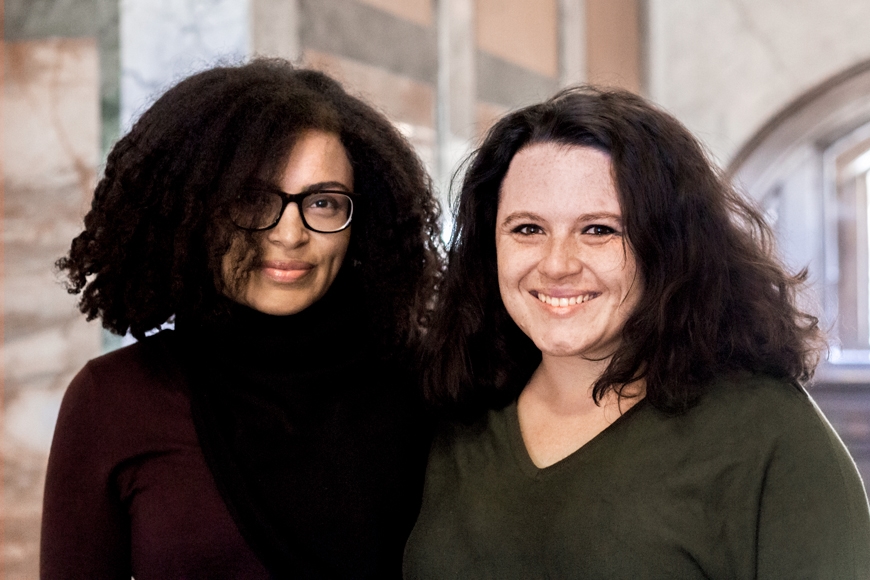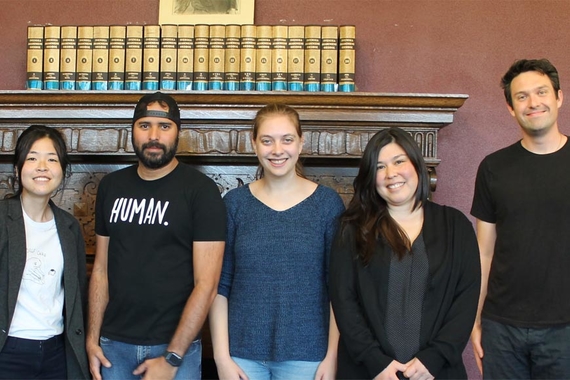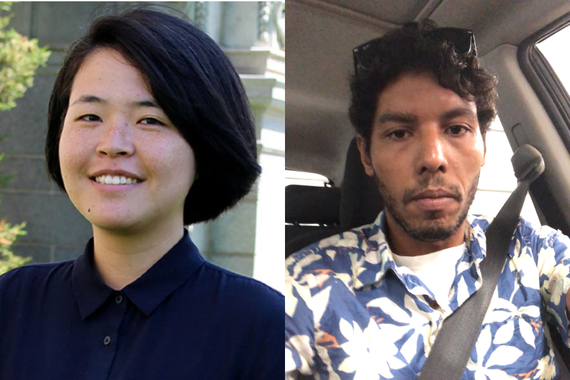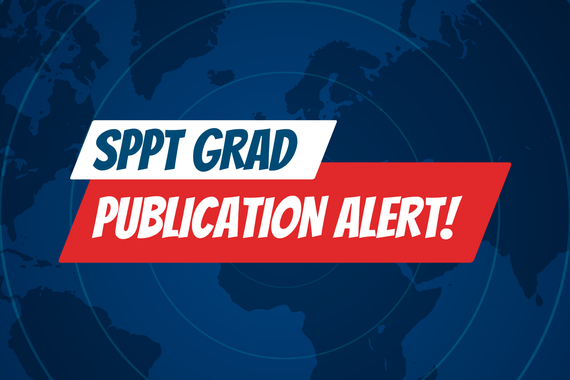Literature as a Tool to Change the World
Commitment and passion are the names of the game within the Spanish & Portuguese studies department. Two students, in particular, are rolling the dice just right.
Sandra Rellier and Ana Cláudia Dos Santos São Bernardo are PhD candidates in their sixth year of graduate school, studying Hispanic and Lusophone literatures and cultures. They are recipients of the University’s doctoral dissertation fellowship (DDF), a prestigious award for graduate students that allows them to focus on completing their dissertations without having to teach. This fellowship provides generous funding, 14 thesis credits per semester, and subsidized health insurance to only the most accomplished PhD candidates.
So just who are these remarkable students? Let’s look at how they are contributing to the department and using literature as a tool to change the world.
Blurring the Lines Between Cultures
Sandra Rellier grew up in France. She traveled and lived all throughout Europe as a child and fell in love with Portuguese after living in Portugal from age 12 to 14. After finishing high school in France, she came to the University of Minnesota to study the language she adored, double majoring in Global Studies and Spanish & Portuguese studies. She now speaks four languages: French, English, Portuguese, and Spanish.
Rellier never planned to pursue graduate school. That is, until her senior year, when she met her advisor Ana Paula Ferreira and took a graduate literature course, where she realized that studying literature was more than “just reading books.” She fell in love with analyzing texts and films, which inspired her to pursue graduate school.
Rellier’s research aims to recover the memories of the pieds-noirs and retornados (“returnees” in English), who were French and Portuguese settlers forced to leave African colonies after independence. These people are generally dismissed as exploiters and racists in their respective European countries. Rellier, however, thinks there’s value in learning their stories while still condemning racism and colonization. “I look at personal histories of the people who often left the former colonies as adolescents and had to go to a motherland they barely knew,” she explains. “That is an experience that I acknowledge and want to render visible.”
Rellier’s research breaks new ground by comparing and contrasting French and Portuguese returnees, a combination that is rarely examined side-by-side. She hopes to continue showcasing the similarities between the French and Portuguese, and their African experiences before their respective exiles, to re-examine purely negative views. Rellier would eventually like to explore other populations in the world that may have had similar—or different—experiences of postcolonial “return.”
Defying Assigned Spaces through Literature
Ana Claudia Dos Santos São Bernardo grew up in a poor community in São Paulo, Brazil. She always knew that education would be her way out of the poverty-stricken cycle she grew up in, so she fought to become the first member of her family to attend college. In Brazil, a degree in teaching guaranteed a job, and so a teacher Dos Santos became. After eight years of teaching English (as well as Portuguese literature and grammar) to Brazillian middle and high school students, she decided to come to the University of Minnesota through a prestigious fellowship from the Interdisciplinary Center for the Study of Global Change (ICGC), which is awarded to outstanding incoming graduate students who are “clearly committed to the interdisciplinary study of the global south in the context of global change.”
Dos Santos is studying literature written by Black women in Brazil. She seeks to understand how this literature has affected society, paving opportunities for Black women to enter spaces they were not previously allowed to occupy. Brazil once avoided confronting the subject of race, and at one time even forbade discussion on the topic. Dos Santos’ dissertation analyzes how Black women authors created space for more conversations on race to occur, making space not only in regards to physical segregation but also the racial segregation of subjects and ways of knowing.
Not everyone writing a dissertation gets to study people they already know, but Dos Santos has a special connection to the writers she spoke to for her research. “I actually know many of these authors personally, and I have the utmost respect for their work,” she explains. Her commitment to her own work reflects her belief in the transformative role of education and creative material produced by society’s most marginalized people.
Dos Santos is a member and former co-chair of the Critical Race and Ethnic Studies (CRES) graduate writing group, which brings together students from across the University interested in the interdisciplinary and critical study of US race and ethnic studies. Both that group and the ICGC fellowship had a big influence on her formation as a scholar by providing powerful academic experiences and connecting her with others who were engaging with research topics like hers from a variety of disciplinary lenses.
Looking Beyond
Rellier and Dos Santos have a sincere passion for their work. In addition to reading and analyzing books, they also explore language, culture, history, and even film. They explain that their graduate school experience has forced them to take on the role of professional academics, explore the nuances of race relations and intercultural communication, and analyze a variety of cultural perspectives.
As they approach graduation, Rellier and Dos Santos hope to land tenured faculty positions.
The graduate students attribute their full-time commitment to not only their passion for their work, but to their advisor, Ana Paula Ferreira, whom they recognize as supportive, brilliant, and resourceful. “I would not have gone to graduate school without her,” Rellier says. “She’s a huge support in what we do,” agrees Dos Santos.
The PhD candidates say that their work is worth it when they see the reactions of their students. Their instruction on race and social relations shows them that literature can be a tool to understand different outlooks on life and to jump-start global change. “Our reward is thinking together with other people about all that is happening in the world,” explains Dos Santos.
This story was written by an undergraduate student in CLA.



